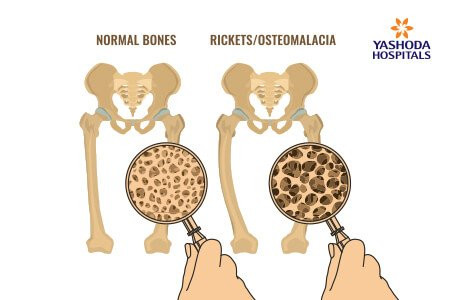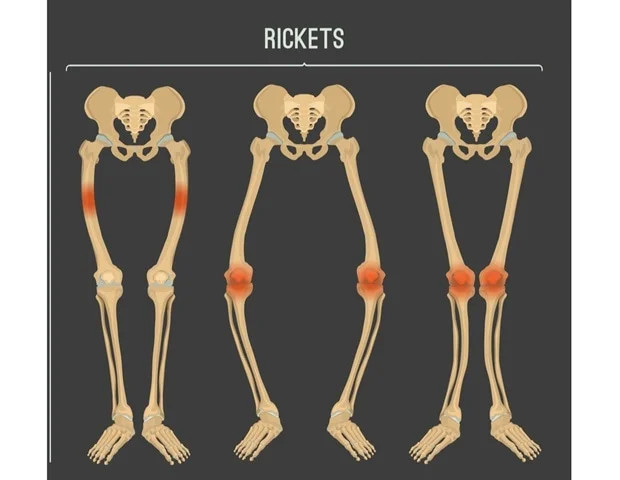Definisi
Vitamin dan mineral merupakan nutrisi yang diperlukan dalam jumlah kecil untuk tubuh dapat bekerja dengan baik dan tetap sehat. Tubuh sendiri tidak mampu membentuk vitamin sehingga diperlukan dari luar melalui makanan atau suplemen. Vitamin diperoleh melalui nutrisi dari diet yang bervariasi dan seimbang walau pada beberapa orang memerlukan tambahan suplemen untuk memenuhi kebutuhan sehari-hari. Tubuh membutuhkan kurang lebih 13 vitamin yang tidak dapat dibentuk sendiri oleh tubuh sehingga diperlukan dari makanan atau suplemen. Berikut 13 vitamin tersebut:
- Vitamin A
- Vitamin D
- Vitamin E
- Vitamin K
- Vitamin C
- Vitamin B1 (thiamin)
- Vitamin B2 (riboflavin)
- Vitamin B3 (niacin)
- Vitamin B5 (asam pantotenat)
- Vitamin B6 (piridoksin)
- Vitamin B7 (biotin)
- Vitamin B9 (folat)
- Vitamin B12 (kobalamin)
Defisiensi vitamin atau kekurangan vitamin merupakan salah satu permasalahan gizi yang paling umum terjadi. Defisiensi vitamin atau avitaminosis terjadi bila tubuh tidak mendapatkan asupan vitamin sesuai dengan kebutuhannya.
Penyebab
Beberapa penyebab dari kekurangan vitamin terkait dengan pola makan yang tidak seimbang, beberapa obat yang dapat mengganggu peroses penyerapan vitamin atau kombinasi keduanya. Beberapa kondisi medis lain yang dapat menyebabkan defisiensi vitamin seperti penyakit Crohn, ketidakseimbangan bakteri alami di saluran cerna, penyakit Celiac, autoimun, kanker usus besar dan penipisan dinding lambung akibat gastritis.
Jika Anda ingin mengetahui selengkapnya mengenai gastritis, Anda dapat membacanya di sini: Gastritis - Definisi, Penyebab, Gejala, dan Pengobatannya
Faktor Risiko
Defisiensi vitamin dapat meningkat pada kondisi tertentu, seperti:
- Pola makan
Jenis diet tertentu dapat menyebabkan defisiensi vitamin. Pada diet rendah sayuran dan buah-buahan, atau diet rendah kalori dapat menyebabkan defisiensi vitamin
- Kondisi medis
Pada wanita hamil, ibu menyusui dan anak-anak memiliki risiko yang tinggi mengalami defisiensi vitamin
- Usia
Pada pasien dengan usia lebih lanjut dengan nafsu makan yang buruk mungkin kurang mendapatkan kalori atau nutrisi pada pola makannya
- Gangguan medis
Kesulitan untuk mencerna makanan atau absorbsi nutrisi dapat menyebabkan defisiensi vitamin
Tindakan operasi dapat mengganggu proses penyerapan nutrisi sehingga memungkinkan meningkatkan risiko kekurangan vitamin atau nutrisi tertentu
Gejala
Gejala dari defisiensi vitamin dapat memengaruhi beberapa fungsi tubuh seperti penglihatan, kesehatan tulang, kondisi rambut dan kulit, kelelahan, depresi, kemampuan menyembuhkan luka yang buruk dan lainnya.Gejala yang dialami tiap orang mungkin berbeda-beda bergantung pada jenis vitamin yang kurang dalam tubuhnya. Gejala yang muncul mungkin tidak terlalu nampak pada awal, tetapi akan nampak bila terjadi dalam waktu yang cukup lama.
Beberapa gejala yang dapat dialami, antara lain:
- Kelelahan dan kelemahan
- Bila Anda merasa mudah mengantuk dan lelah sepanjang waktu, Anda mungkin mengalami kekurangan vitamin D, vitamin B dan/atau vitamin C
- Vitamin D membantu kekuatan tulang dan otot sehingga ketika Anda kekurangan vitamin D, Anda akan merasa lemah dan kekurangan energi
- Vitamin C dan semua vitamin B kecuali folat (vitamin B9) terkait dengan produksi energi di dalam sel, bila Anda kekurangan vitamin tersebut akan merasakan kekurangan energi Kekurangan vitamin tersebut dapat memengaruhi metabolisme dan keseluruhan kesehatan
- Defisiensi folat dapat mengarahkan pada kelelahan dan kelemahan sehingga menyebabkan anemia. Anemia dapat terjadi bila tubuh Anda tidak mencukupi sel darah merah yang membawa oksigen ke jaringan Anda. Oksigen diperlukan untuk fungsi dan energi tubuh
- Kulit dan rambut kering
- Hal ini disebabkan oleh defisiensi vitamin A, vitamin B, vitamin C dan vitamin D
- Vitamin tersebut umumnya digunakan dalam produk perawatan kulit dan rambut. Diskusikan dengan dokter Anda terkait suplemen vitamin atau penggunaan topikal (pada kulit) untuk meningkatkan kesehatan kulit dan rambut Anda. Penggunaan vitamin A yang tinggi dapat membahayakan kulit Anda
- Depresi
- Defisiensi vitamin B1,3,6,9,12, vitamin C dan vitamin D terkadang dapat berkontribusi pada depresi klinis. Beberapa suplemen dapat membantu meringankan depresi tetapi bukan sebagai pengganti obat anti-depresan tersebut.
- Mudah terluka atau berdarah
- Kulit yang mudah terluka dan berdarah dapat terjadi karena adanya permasalahan pada pembekuan darah, kemampuan penyembuhan atau pembentukan kolagen yang buruk. Vitamin yang diperlukan untuk berkontribusi yaitu vitamin C dan vitamin K, terutama pada bayi baru lahir.
- Kemampuan buruk untuk menyembuhkan
- Hal ini berarti rasa nyeri Anda memakan waktu yang lama untuk sembuh. Beberapa vitamin yang berkontribusi yaitu vitamin A, B, C, D (ketika dikombinasi dengan zink dan arginin) dan vitamin K. Beberapa vitamin tersebut kaya akan antioksidan dan berkontribusi pada pembentukan kolagen, membangun beberapa tipe sel atau jaringan
- Rentan terkena infeksi
- Defisiensi vitamin dapat memengaruhi sistem imunitas tubuh dan meningkatkan risiko mengalami infeksi. Vitamin A, C dan D berperan penting dalam sistem imun
- Kerapuhan tulang
- Vitamin yang menjaga tulang Anda tetap kuat dan sehat meliputi vitamin A, B6, B9, B12, C,D dan K. Kekurangan vitamin tersebut dapat menurunkan densitas tulang dan meningkatkan risiko retak tulang
- Perubahan warna kulit
- Perubahan warna kulit disebabkan oleh kekurangan vitamin yang terjadi pada beberapa hal seperti kehilangan pigmentasi pada satu titik (kekurangan vitamin D), pigmentasi yang lebih gelap pada suatu titik (vitamin B12, vitamin D) atau warna kulit yang lebih gelap (vitamin C, vitamin B6, B9, 12).
Diagnosis
Beberapa defisisensi vitamin dapat menyebabkan lebih dari satu gejala. Dokter dapat menyarankan Anda melakukan beberapa pemeriksaan untuk menentukan diagnosis dari defisiensi vitamin, seperti:
- Pemeriksaan riwayat kesehatan, termasuk gejala dan riwayat kesehatan keluarga
- Pemeriksaan fisik
- Pemeriksaan darah untuk mengukur kadar vitamin. Pemeriksaan darah lengkap untuk pemeriksaan sel darah merah.
- Melakukan evaluasi dari pola makan dan kebiasaan makan Anda
- Pemeriksaan lain untuk menentukan kondisi lain yang belum diketahui.
Tata Laksana
Pengobatan pada defisiensi vitamin bergantung pada tipe dan keparahannya. Beberapa kondisi yang belum diketahui dapat menjadi faktor. Dokter mungkin menyarankan Anda melakukan pemeriksaan lebih lanjut untuk mengidentifikasi keparahan defisiensi vitamin Anda sebelum menentukan pengobatan yang diberikan. Pengobatan ini termasuk untuk gangguan lain atau perubahan pada pengobatan.
- Perubahan pola makan
- Defisiensi vitamin yang disebabkan oleh kondisi medis tertentu dapat diperbaiki dengan perubahan pola makan untuk mencegah defisiensi vitamin semakin memburuk. Anda dapat mempelajari makanan apa saya yang mengandung vitamin sehingga Anda dapat memenuhi kebutuhan Anda. Diskusikan dengan ahli gizi Anda untuk membantu makanan apa yang diperlukan untuk diet Anda sehingga membantu dalam merencanakan pola makan Anda.
- Pengganti vitamin
- Suplemen vitamin dapat menjadi salah satu opsi. Anda akan diberikan obat bebas atau obat resep. Ketika terjadi permasalahan dengan absorpsi, suplemen seperti vitamin B12 perlu dimasukkan melalui injeksi dibandingkan melalui oral.
Baca Juga: Vitamin B12 - Cara Kerja, Kontraindiaksi dan Interaksi Obat
Komplikasi
Kekurangan vitamin yang dapat menyebabkan kondisi kesehatan serius yang tidak dapat diperbaiki walau dengan pengobatan. Beberapa kekurangan vitamin dapat menyebabkan komplikasi:
- Penurunan sensasi pada tangan dan kaki
- Kelemahan pada jari dan jempol
- Gangguan penglihatan
- Gangguan ingatan
- Perubahan perilaku
- Napas pendek
- Detak jantung berdetak cepat
Pencegahan
Memastikan jumlah kebutuhan dari nutrisi esensial yang diperlukan dari pola makan dan suplemen merupakan pencegahan terbaik untuk defisiensi vitamin. Panduan RDA membantu dalam memastikan jumlah vitamin yang dibutuhkan terpenuhi. Jumlah aman yang dibutuhkan dari beberapa vitamin sering tercantum dalam multivitamin.
Kapan Harus ke Dokter?
Hubungi dokter bila Anda merasa ada gejala defisiensi vitamin. Segera ke rumah sakit bila Anda mengalami gejala yang parah. Konsultasikan dengan dokter bila Anda didiagnosis defisiensi vitamin dan dokter akan menyarankan melakukan perbaikan pola makan.
Mau tahu informasi seputar penyakit lainnya? Cek di sini, ya!
- dr. Monica Salim
An Overview of Vitamin Deficiency. (2022). Retrieved 27 February 2023, from https://www.verywellhealth.com/can-vitamin-deficiency-cause-insomnia-3014720
Micronutrients. (2020). Retrieved 27 February 2023, from https://www.who.int/health-topics/micronutrients#tab=tab_1
Vitamin deficiency anemia. (2022). Retrieved 27 February 2023, from https://www.mayoclinic.org/diseases-conditions/vitamin-deficiency-anemia/symptoms-causes/syc-20355025
8 Common Signs You’re Deficient in Vitamins. (2023). 27 February 2023,, from https://www.healthline.com/nutrition/vitamin-deficiency
Vitamin D Deficiency. (2022). 27 February 2023,, from https://my.clevelandclinic.org/health/articles/15050-vitamin-d–vitamin-d-deficiency
Vitamin Deficiency Anemia. (2022). 27 February 2023, from https://my.clevelandclinic.org/health/diseases/17732-vitamin-deficiency-anemia
Vitamin E. (2021). Retrieved 27 February 2023, from https://medlineplus.gov/ency/article/002406.htm
Symptoms of Vitamin B Deficiencies. (2020). Retrieved 27 February 2023, https://www.healthline.com/health/symptoms-of-vitamin-b-deficiency
Vitamin C. (2020). Retrieved 27 February 2023,, from https://www.nhs.uk/conditions/vitamins-and-minerals/vitamin-c/











